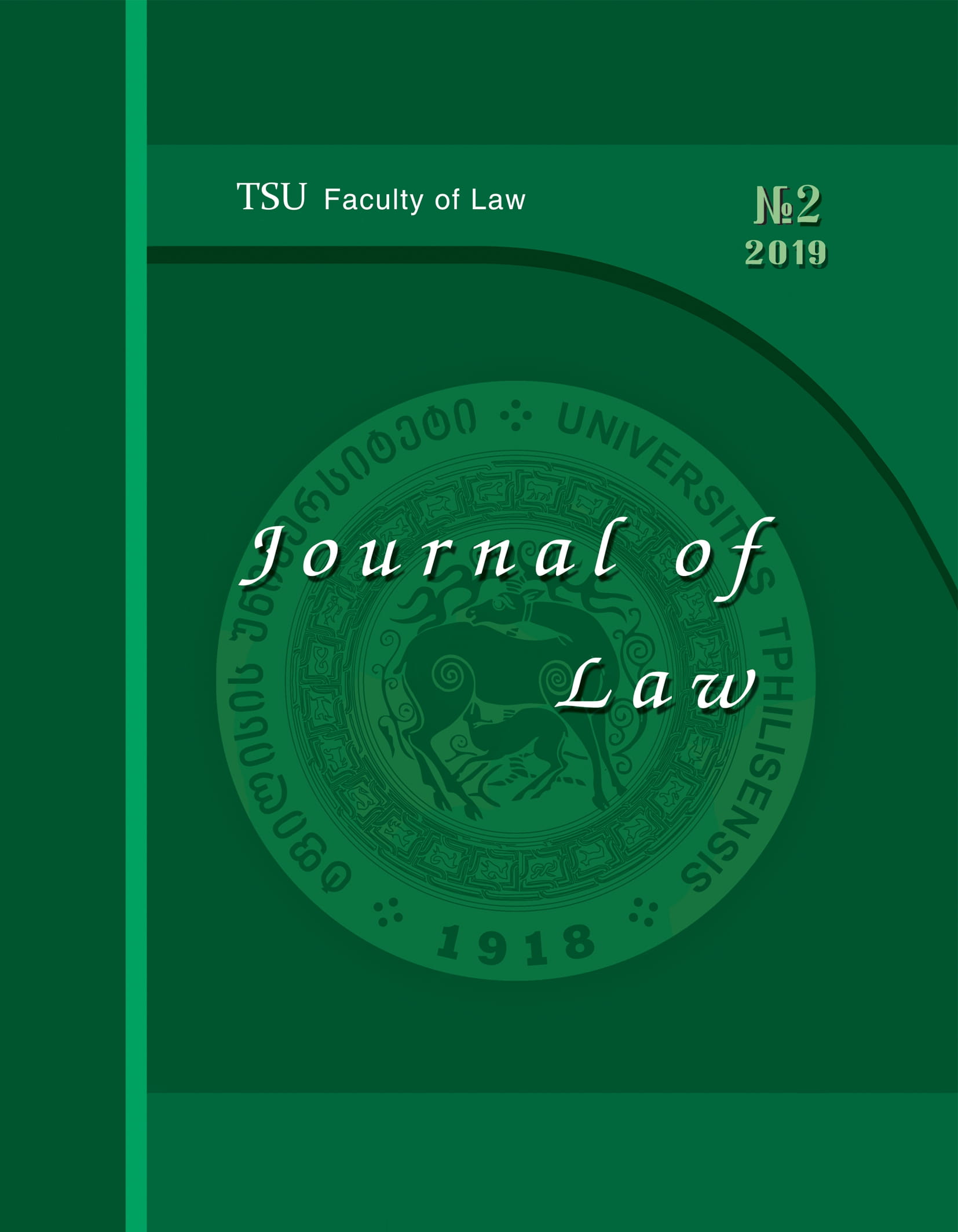Escorting Prisoners with Physical Disabilities
Keywords:
Legislation, International Standards, Prisoner’s Rights, Protection, Escorting, Escorted Persons, Persons with Disabilities, Searches.Abstract
The present article analyses the challenges and discusses possible solutions connected with transportation (escorting) of prisoners with disabilities. It is noteworthy that, in general, very few materials are available regarding the procedure of escorting prisoners. The standards regulating the transportation of persons with disabilities (PWDs) is especially scarce. Therefore, the existing research papers do not offer any efficient solutions to the issue. The article studies those risks and problems that might be related to transferring prisoners with disabilities and specificities of their transportation; the article also discusses specific approaches set by international standards; it also analyses the practice of the European Court of Human Rights (ECtHR), according to which the violations made during the transportation of prisoners were determined to be in violation of Article 3 of the European Convention on Human Rights (ECHR).[1]
The purpose of the article is to show the gaps in the Georgian reality and to offer specific recommendations to the penitentiary system of Georgia, which would allow the elimination of these gaps.
[1] Council of Europe, European Convention for the Protection of Human Rights and Fundamental Freedoms, 4 November 1950, ETS 5, Article 3.
References
Imprisonment Code of Georgia.
Order N149 of 19 October 2015 of the Minister of Corrections of Georgia on “Approving the Rule of Removal/Transfer of Accused/Convicted Persons”, 2015.
Order N145 of 12 September 2014 of the Minister of Corrections on “the types of special means possessed by bodies responsible for enforcement of pretrial detention and imprisonment as well as rules and conditions of storing, carrying and using such means; rules of determining persons authorised to use the special means”.
Council of Europe, European Convention for the Protection of Human Rights and Fundamental Freedoms, 4 November 1950, ETS 5.
Recommendation Rec(2006)2 of the Committee of Ministers of the Council of Europe to member states on the European Prison Rules, 2006.
The United Nations Standard Minimum Rules for the Treatment of Prisoners (the Nelson Mandela Rules), 2015.
Mr Mallia E., Report, Committee on Legal Affairs and Human Rights, Protecting human rights during transfers of prisoners, Parliamentary Assembly, CoE, Malta, 2019, 3.
Handbook on Prisoners with Special Needs, United Nations Office on Drugs and crime, Vienna, 2009, 9, 43, 57, 79, 103, 123, 143, https://www.unodc.org/pdf/criminal_justice/Handbook_on_Prisoners_with_
Special_Needs.pdf [17.03.2020].
Communicating Information About Risks on Escort or Transfer, The Person Escort Record (PER), Prison Service Order, 2009, 15.
Factsheet, European Committee for the Prevention of Torture and Inhuman or Degrading Treatment or Punishment (CPT), Council of Europe, 2018, 2-5, 12, 17, https://rm.coe.int/16808b631d, [17.03.2020].
Disabled prisoners: A short thematic review on the care and support of prisoners with a disability, Thematic report by HM Inspectorate of Prisons, London 2009, 4, 10, 29, https://www.justiceinspectorates.gov.uk/hmiprisons/wpcontent/uploads/sites/4/2014/07/Disability-thematic-2008.pdf, [17.03.2020].
Prison Incident Management Handbook, UN, 2013, 27, https://www.un.org/ruleoflaw/files/Prison_Incident_Management_Handbook_OROLSI_Mar2013.pdf. [17.03.2020].
Kavalerov and others v. Russia: References:55477/10, ECHR 2017.
Idalov v. Russia (App no 5826/03) ECHR 22 May 2012.
Mouisel v. France, Application No. 67263/01, 2002.
Downloads
Published
How to Cite
Issue
Section
License

This work is licensed under a Creative Commons Attribution-ShareAlike 4.0 International License.









